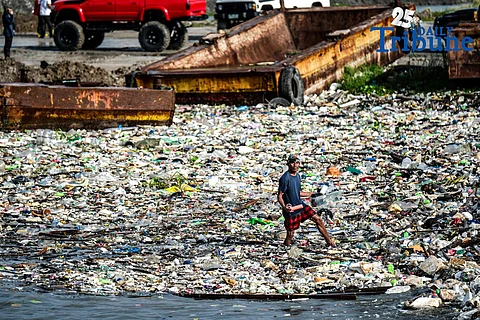
- NEWS
- the EDIT
- COMMENTARY
- BUSINESS
- LIFE
- SHOW
- ACTION
- GLOBAL GOALS
- SNAPS
- DYARYO TIRADA
- MORE

The recent cascading storms have shown that severe, prolonged rainfall is no longer an anomaly but has become the new norm. Yet, the country's disaster response systems are under increasing strain due to simultaneous and extended emergencies. This is the view of the advocacy group, Climate Conflict Action, which highlighted the "escalating climate risks" posed by the Southwest Monsoon and back-to-back cyclones "Crising," "Dante," and "Emong," which brought torrential rains and widespread flooding across Central Luzon, the Ilocos region, and Western Visayas.
In a statement, Climate Conflict Action declared that the growing gap between rising climate risks and under-resourced response capacities represents an urgent threat not only to lives and livelihoods but also to community stability.
The group pointed out early signs of climate-related conflict. For instance, in urban flood zones like Manila, aid is often limited to those who make it to evacuation centers, while countless families trapped at home remain cut off. When aid deliveries are inconsistent or perceived as unfair, tensions flare between neighbors, and even localized disputes over scarce resources can arise.
Overcrowded evacuation centers, when not managed with conflict-sensitive strategies, can turn into flashpoints for frustration and rivalry among evacuees. The group also raised concerns about climate migration pressures. As rivers swell and rice fields are submerged, displaced households move into host communities, straining local services and potentially causing land-use disputes.
Additionally, infrastructure vulnerabilities have been highlighted, including concerns about the MRT-7 extension along Commonwealth Avenue in Quezon City, which has been blamed for worsening urban runoff in the area. Although municipal and private partners have acted quickly to address these concerns, this episode underscores the urgent need for climate-resilient development at all levels.
“It is time for our disaster response to evolve, from purely reactive relief to proactive prevention, from siloed commands to seamless coordination, and from technical fixes to community-anchored, conflict-aware strategies," the group said. "The lives, stability, and social cohesion of our most vulnerable communities depend on nothing less.”
The group added that “without decisive, conflict-sensitive action from both local and national leaders, today’s floods risk becoming tomorrow’s flashpoints.”
